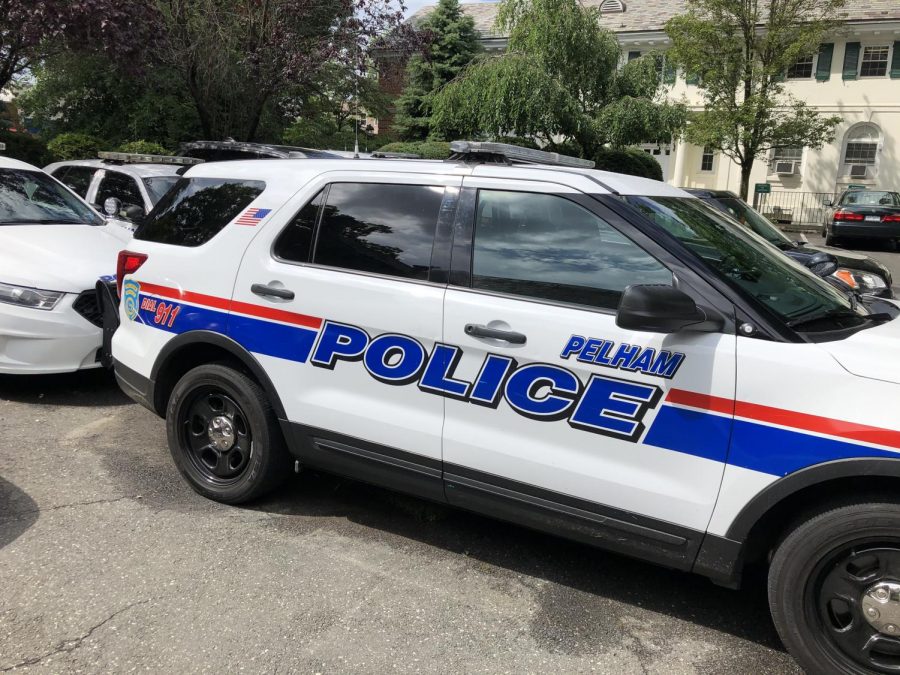Village police chief details new body-cam technology, misconduct-inquiry process at second public forum
Village of Pelham Police Chief Jason Pallett detailed forthcoming body-cam technology and the process for an officer-misconduct investigation Thursday at the village’s second of three public forums addressing police reform.
The new cameras will be connected to officers’ taser and gun holsters, as well as police cars, so when a weapon is removed from its holster or overhead emergency lights are activated, the cameras will automatically start recording, Pallett said. The department is planning to purchase ten Axon cameras. Pallett said he plans to “commit to a capital project or even an annual separate budget line for the body camera policy” during the budget process.
The village’s steering committee on police reform recommended the required use of body-cams in its full report. Pallett said that he immediately got 10 Axon cameras to test after the recommendation came out, as he had previously advocated for their use in 2016, though the idea did not gain traction due to budget cuts. Officers tried out the cameras for a month in the fall, with each officer on tour wearing a camera.
The board is aiming to see the technology implemented by the end of the year, said Trustee Hanan Eldahry.
According to Pallett, he was “ecstatic” when the steering committee called for body cameras, and the technology shows the “department’s commitment to police reform.”
The three public forums and steering committee report are part of the process mandated by Gov. Andrew Cuomo in a June executive order, which said “following the police-involved death of George Floyd in Minnesota, protests have taken place daily throughout the nation and in communities across New York State in response to police-involved deaths and racially-biased law enforcement to demand change, action and accountability.” Cuomo’s order requires each municipality to engage in a public process that results in adoption of an action plan by April.
Pallett outlined the village’s investigative process through which all officer misconduct complaints pass. Once an internal or external complaint is brought to Lt. Danny Green, an investigation begins in which he interviews all parties involved in the complaint, including the complainant, if possible, the officer who is subject of the complaint and any civilian witnesses or officers present on the scene. Green writes a letter to Pallett with his findings and recommendation, which stays in the officer’s file even if no further action is taken.
On receiving the letter, Pallett opens his own investigation and makes the ultimate decision as to how the officer should be punished or the issue should be otherwise addressed. The chief said he can make the decision to suspend an officer for up to 20 days, and if he feels that further action is necessary, he contacts the board of trustees. A hearing would then be held in-house.
Pallett said the steering committee’s report highlighted a gap in the misconduct reporting process where citizens “aren’t always comfortable going to the police department” to file their complaint. The village is working to expand the ways through which a complaint can be filed, he said, including an app which can be used to file incidents of misconduct anonymously.
Pallett said that the internal affairs process also serves to protect officers from false accusations of misconduct.
When asked how complainants could avoid retaliation and maintain their anonymity when filing a complaint, Pallett said that complainants can submit video evidence of their experience, though it is more difficult to conduct an investigation without identifying the source.
Mayor Chance Mullen added that this issue will helped by the use of body-cams.
The force investigates anonymous complaints with the “same gusto” as other reports of misconduct, said Green.
“We entertain all complaints,” said Pallett. “No matter how we receive a complaint, it’s always entertained.”
Rev. Noel Vanek asked how officer records are kept and what information officers carry with them if they move municipalities to another police force. Pallett said that Pelham keeps records of every complaint made against officers in their respective files, regardless of investigation outcomes. These files are compiled into a statewide central repository which would follow officers if they moved forces, either by resignation or termination of employment.
Mullen encouraged Pelham residents to reach out to him, Pallett or Green with any concerns or questions regarding the village’s police reform agenda.
Aside from her work at the Examiner, she competes in the high jump for the track and field team as a team captain. In her free time she enjoys hiking,...
Georgia Russello is a graduate of Pelham Memorial High School's class of 2022. In addition to writing for the Examiner, she was a member of the Science...










